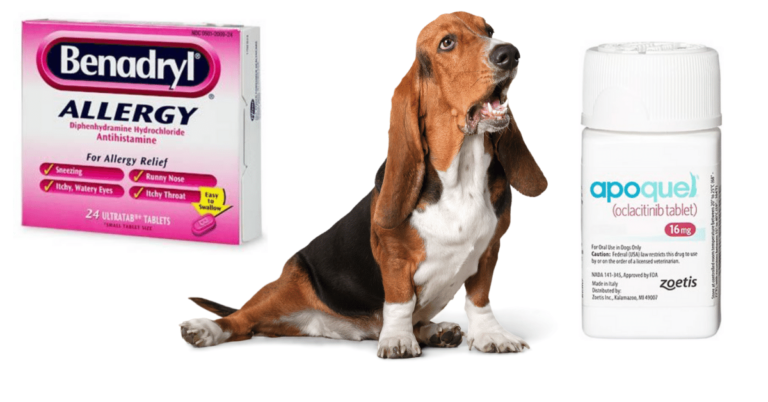Dog Behavior After Heartworm Treatment
When your beloved dog completes heartworm treatment, you might notice some changes in their behavior that can be concerning. As a caring pet parent, understanding what’s normal during heartworm recovery and what requires immediate attention can make all the difference in your dog’s healing journey. This comprehensive guide will help you navigate the behavioral changes your furry companion may experience and provide practical strategies to support them through this critical recovery period.
Heartworm disease treatment is a complex medical process that affects not just your dog’s physical health, but their emotional well-being too. Many dog owners are surprised to learn that behavioral changes after heartworm treatment are completely normal and often expected. Your dog’s body has just undergone intensive therapy to eliminate dangerous parasites, and both the treatment medications and the healing process can significantly impact how they feel and behave.
Common Behavioral Changes During Heartworm Recovery
The most frequently observed behavioral changes in dogs after heartworm treatment include increased lethargy, depression, and reduced appetite. These symptoms typically emerge within the first few days following treatment and can persist for several weeks as your dog’s body processes the treatment and begins healing.
“Owners frequently report behavioral changes such as depression and lethargy following heartworm treatment, which are often secondary to the discomfort associated with the treatment process. This is a normal part of recovery, but monitoring these changes closely is essential for ensuring proper healing.”
– Dr. Sarah Mitchell, Veterinary Internal Medicine Specialist
Lethargy and decreased activity levels are perhaps the most noticeable changes pet parents observe. Your normally energetic dog might spend more time sleeping, show less interest in their favorite toys, or seem reluctant to engage in activities they previously enjoyed. This behavior serves an important purpose during heartworm recovery, as rest allows the body to focus energy on healing and processing the deceased heartworms.
Physical Discomfort and Its Impact on Behavior
The heartworm treatment protocol involves injections that can cause significant muscle soreness and back pain. This physical discomfort directly influences your dog’s behavior, making them less willing to jump, run, or engage in normal activities. Some dogs may exhibit signs of pain such as reluctance to be touched, difficulty getting up from lying down, or changes in their walking gait.
“The injection sites for heartworm treatment can cause pain and soreness that spreads throughout the lower back, causing temporary difficulty with mobility. While this muscle soreness typically resolves within a few days to a week, it’s crucial not to put pressure on your dog’s back or attempt to lift them during this sensitive period.”
– Dr. Michael Thompson, Emergency Veterinarian
Understanding that your dog’s behavioral changes stem from legitimate physical discomfort can help you respond with appropriate patience and care. Avoid forcing activity or exercise during this time, and instead focus on providing comfortable resting areas and gentle emotional support.
Appetite Changes and Eating Behaviors
Many dogs experience appetite changes following heartworm treatment. Some may show complete loss of interest in food, while others might be more selective about what they’re willing to eat. Nausea is a common side effect of the treatment medications, which can significantly impact your dog’s relationship with food during recovery.
If your dog is reluctant to eat their regular kibble, try offering small portions of bland, easily digestible foods like boiled chicken and rice. Warming the food slightly can make it more appealing, and hand-feeding may encourage hesitant eaters. However, it’s important to maintain nutritional balance during recovery, so consult with your veterinarian about appropriate dietary modifications.
Emotional and Psychological Recovery
The emotional impact of heartworm treatment on dogs is often underestimated. The combination of physical discomfort, medication effects, and restricted activity can lead to depression-like symptoms in many dogs. They may seem withdrawn, less responsive to their favorite people, or show decreased interest in social interactions.
“Dogs are incredibly intuitive and can sense when something significant has happened to their bodies. The behavioral changes we see after heartworm treatment often reflect not just physical discomfort, but also an emotional response to feeling unwell. Providing consistent, gentle reassurance and maintaining routine where possible can significantly support their emotional recovery.”
– Dr. Lisa Rodriguez, Veterinary Behaviorist
Creating a calm, supportive environment is crucial for your dog’s emotional healing. Maintain consistent daily routines as much as possible, offer gentle attention and affection, and avoid overwhelming them with too much stimulation during their recovery period.
Supporting Your Dog Through Recovery
The key to successful heartworm recovery lies in providing appropriate care while allowing your dog’s body to heal. This means strictly following your veterinarian’s exercise restrictions, typically requiring several weeks of minimal activity. While this can be challenging for active dogs and their owners, respecting these limitations is crucial for preventing potentially life-threatening complications.
Create comfortable resting areas throughout your home where your dog can relax without feeling isolated from family activities. Provide mental stimulation through gentle activities like puzzle feeders or treat-dispensing toys that don’t require physical exertion. Short, leashed walks for bathroom breaks are usually acceptable, but avoid any activity that increases heart rate or breathing.
When to Contact Your Veterinarian
While many behavioral changes are normal during heartworm recovery, certain symptoms require immediate veterinary attention. Contact your veterinarian immediately if your dog experiences excessive panting, difficulty breathing, sudden collapse, persistent vomiting, severe lethargy that prevents them from eating or drinking, or any signs of severe distress.
“The most critical period following heartworm treatment is the first 30 days. While some behavioral changes are expected, any sudden deterioration in condition, breathing difficulties, or complete refusal to eat or drink warrants immediate emergency evaluation. Trust your instincts as a pet parent – you know your dog best.”
– Dr. Jennifer Park, Emergency and Critical Care Veterinarian
Keep detailed notes about your dog’s behavior, appetite, and overall condition throughout the recovery period. This information can be invaluable for your veterinary team in assessing recovery progress and identifying any concerning changes early.
Long-term Behavioral Recovery and Prevention
Most dogs return to their normal behavior patterns within 4-6 weeks following heartworm treatment, though complete physical recovery may take several months. As your dog begins feeling better, you’ll likely notice gradual improvements in energy levels, appetite, and interest in activities they previously enjoyed.
The experience of heartworm treatment can be traumatic for both dogs and their families, but it also presents an opportunity to strengthen your bond and establish healthy habits. Use this recovery period to reinforce positive behaviors, establish consistent routines, and demonstrate the kind of patient, loving care that builds trust and confidence.
Prevention remains the best approach to heartworm disease. Once your dog has completed treatment and recovery, work with your veterinarian to establish a robust heartworm prevention protocol. Regular monthly preventatives, annual testing, and consistent veterinary care can ensure your dog never has to endure heartworm treatment again.
Moving Forward with Confidence
Understanding the behavioral changes your dog may experience after heartworm treatment empowers you to provide the best possible care during their recovery. Remember that every dog responds differently to treatment, and recovery timelines can vary based on factors like age, overall health, and the severity of the initial infection.
“The dogs I see who recover most successfully from heartworm treatment have owners who understand that patience and consistency are key. The behavioral changes during recovery are temporary, but the love and care you provide during this vulnerable time will strengthen your relationship for years to come.”
– Dr. Amanda Chen, Small Animal Internal Medicine
Your dog’s behavioral changes after heartworm treatment are a normal part of the healing process. By providing appropriate support, following veterinary guidance, and maintaining realistic expectations, you’re giving your beloved companion the best chance for a complete recovery and a long, healthy life ahead.
The road to recovery may seem long, but with patience, understanding, and proper care, most dogs emerge from heartworm treatment stronger and ready to enjoy all the adventures life has to offer. Trust the process, trust your veterinary team, and most importantly, trust in your dog’s remarkable ability to heal and thrive with your loving support.





